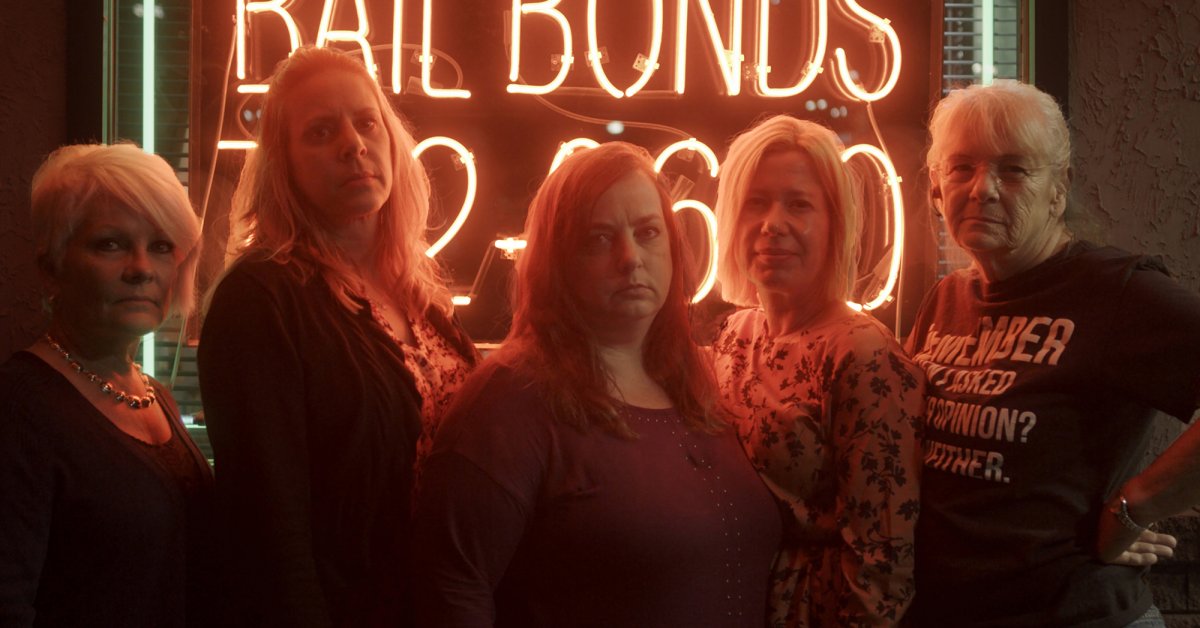
Why do so many women love true crime? The question has come up over and over again amid the current genre renaissance—one sparked by stories about dead women and the men accused of killing them. Some have speculated that female true-crime fans are, consciously or otherwise, seeking information that will help them stay safe; others figure they find it cathartic to watch their worst fears play out from a safe distance. Rachel Monroe, the author of 2019’s Savage Appetites: Four True Stories of Women, Crime, and Obsession has made the subversive suggestion that “perhaps we liked creepy stories because something creepy was in us.” For obvious reasons, no one is really making the case that women find crime stories uplifting.
Yet uplifting—for female viewers in particular—is indeed the way to describe Love Fraud, a tight, energetic four-episode Showtime docuseries that premieres on August 30. Filmmaking duo Heidi Ewing and Rachel Grady (Jesus Camp, One of Us) probe the strange case of Richard Scott Smith, a man who marries women and drains their bank accounts before moving on to his next target. True-crime fans will surely hear echoes of Dirty John, the hit podcast turned Bravo docudrama about a wealthy businesswoman who weds the doting doctor of her dreams, only to realize he’s actually a litigious, violent ex-con. But while that story asks how such an apparently savvy, successful woman could allow herself to be so catastrophically misled, Love Fraud’s aim is to restore the dignity of Smith’s victims. With help from the directors and a bounty hunter named Carla who seems destined to be the show’s breakout star, several of them band together to take him down.
One of Smith’s exes starts a blog to warn other women about him. Another offers a maxim: “The best way to get over a guy is revenge.” A former wife who alleges physical abuse tells the filmmakers, “I’d say, ‘Go ahead, hit me, you’re such a man.’” And many of the women turn out to be capable amateur detectives. As their stories unfold, it becomes clear that their traumatic histories with men began long before they met Smith. In many cases, decades of abuse, betrayal, loneliness or stifled dreams seem to have opened them up to the overtures of a con artist posing as a kind, romantic guy. But, Ewing and Grady take pains to demonstrate, that doesn’t make them suckers or doormats. (Tough-as-nails Carla, who’s working pro bono on this case, is also a survivor of domestic violence. “I’ll kill anyone that tries to touch me ever again,” she avows—and you believe her.) Even minor female characters have personality and agency, from a daughter who snoops in Smith’s car to find proof her mom’s new boyfriend isn’t who he says he is to a hilariously sharp former employee at a restaurant he opened with one mark.
As innovative in its style as it is iconoclastic in its themes, the show avoids the gritty visual clichés of true crime in favor of gorgeous animated collages that juxtapose candy-colored dreamscapes with inky, gothic interiors. It’s a perfect backdrop for a narrative in which darkness and hope are so intimately entwined. Undaunted by the justice system’s apparent indifference to crimes like Smith’s, Love Fraud finds triumph in women’s collective strength. It’s a vital corrective for a genre that often underestimates its biggest fans, as well as an extremely fun ride.
"crime" - Google News
August 29, 2020 at 01:22AM
https://ift.tt/2YDSxMj
Review: Showtime's Love Fraud Is a Feel-Good True Crime Romp - TIME
"crime" - Google News
https://ift.tt/37MG37k
https://ift.tt/2VTi5Ee
Bagikan Berita Ini














0 Response to "Review: Showtime's Love Fraud Is a Feel-Good True Crime Romp - TIME"
Post a Comment